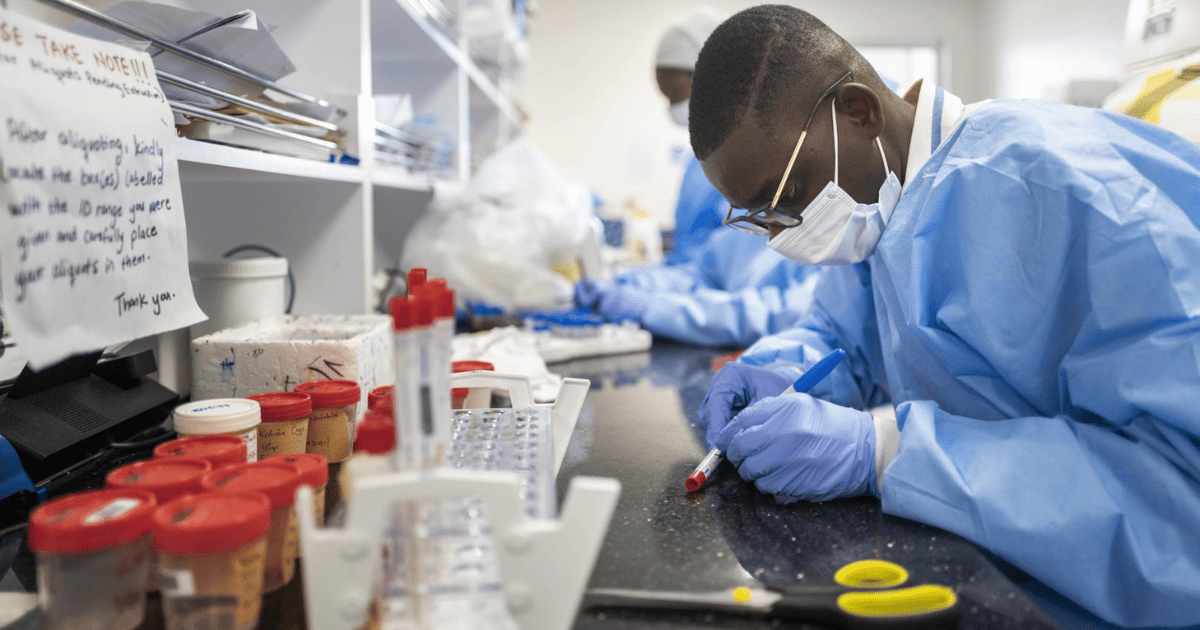
From the newsletter
More than half the total health venture & grant funding we track was allocated to addressing infectious diseases in June. Of this, $11.3 million was specifically dedicated to tuberculosis (TB) and malaria. The Global Fund to Fight AIDS, Tuberculosis and Malaria received $872,618 to prepare for the continent-wide rollout of affordable, innovative TB diagnostics.
Uganda’s Infectious Diseases Research Collaboration was awarded $455,000 to investigate how malaria chemoprevention affects immunity in children. The largest grant for infectious diseases, amounting to $10 million, was given to EPFL and Lausanne University Hospital (CHUV) for the deployment of an AI-powered lung ultrasound tool aimed at improving TB diagnosis.
Artificial intelligence was a clear funding priority. Senegal’s Kera Health secured $10 million to develop an integrated digital health platform linking records, diagnostics and insurance services. Notably, the EPFL-CHUV diagnostic tool is also AI-powered, highlighting the growing role of intelligent systems in Africa’s disease response.
More details
The EPFL-CHUV AI-powered lung ultrasound tool, ULTR-AI, is now being rolled out in Benin, Mali, and South Africa to boost TB diagnosis. Funded through a five-year, $10 million, European initiative, it connects to smartphones and uses AI to interpret scans, offering real-time, low-cost diagnostics where chest X-rays are scarce or inaccessible. It will reach 3,000 patients initially.
ULTR-AI was developed by the Swiss Federal Institute of Technology in Lausanne and Lausanne University Hospital. The teams behind the project highlight that it addresses a critical diagnostic gap: interpreting ultrasound images typically requires advanced training, which many frontline workers do not have. The tool simplifies this process through automated analysis. Its portability also helps address the healthcare worker shortage.
The Global Fund to Fight AIDS, Tuberculosis and Malaria works in Africa to combat these diseases through strategic investments, grant management, research and partnerships. They focus on prevention, treatment and strengthening health systems. The $872,618 grant from the Gates Foundation will support its operational resources to plan for early introduction of innovative diagnostics for tuberculosis at the lowest possible price across the continent.
The Infectious Diseases Research Collaboration is a non-profit research organisation focused on conducting research in infectious diseases in Uganda. It was established by Ugandan health scientists in 2008 to promote evidence-based policymaking in infectious disease management. The $455,000 grant from the Gates Foundation will support a clinical study evaluating the effects of malaria chemoprevention on immunity and disease risk in children
Kera’s $10 million AI innovation aims to streamline fragmented healthcare systems in West Africa, making them more responsive to disease burdens worsened by climate change. The funding, granted by The International Finance Corporation, will enable Kera to integrate fragmented health services like medical records, laboratory results, pharmaceutical prescriptions and insurance data to improve the quality of care in Senegal and other parts of West Africa.
Our take
In 2023, Africa experienced 180 public health emergencies, of which 90% were infectious diseases.
Testing capacity for epidemic-prone diseases is essential to enable rapid and accurate identification of causative agents and for action to prevent disease spread, especially those linked to climate change.
Early testing enables monitoring disease transmission, evaluating public health interventions and informing targeted resource allocation during outbreaks.